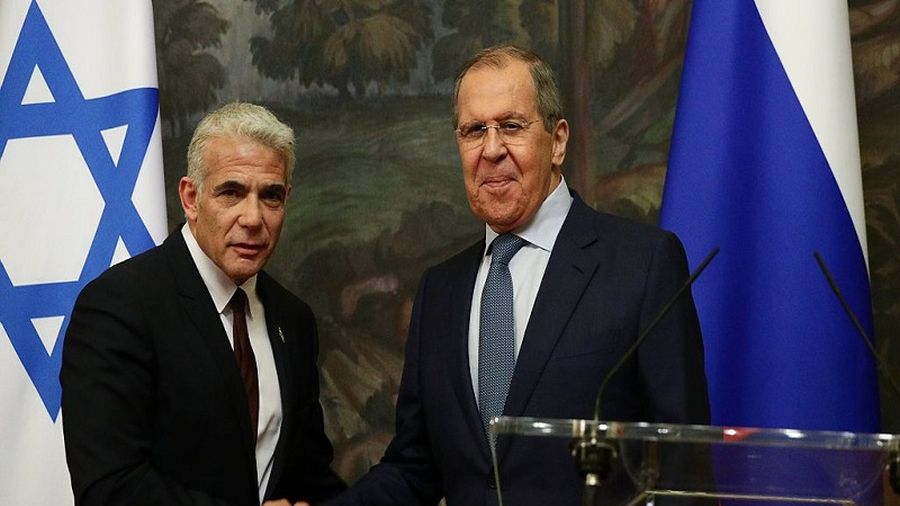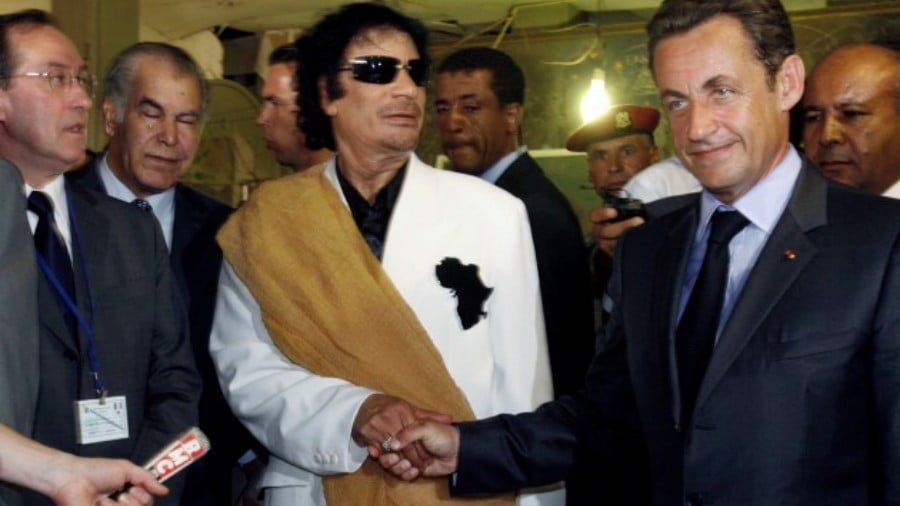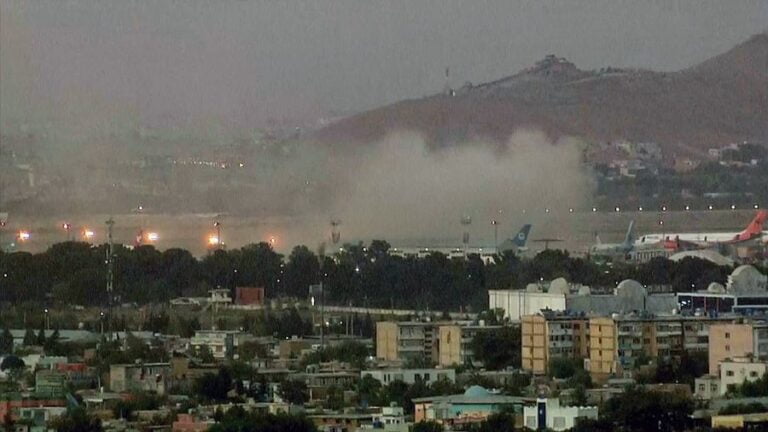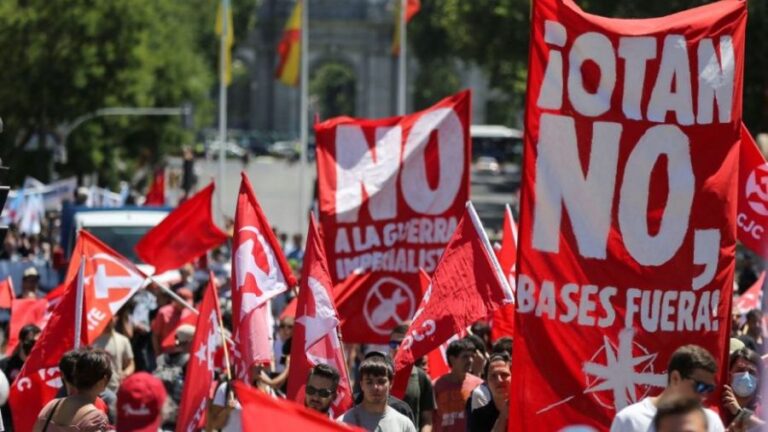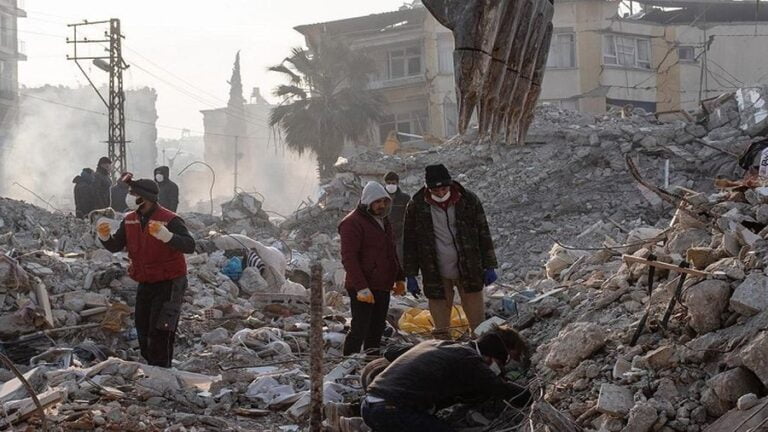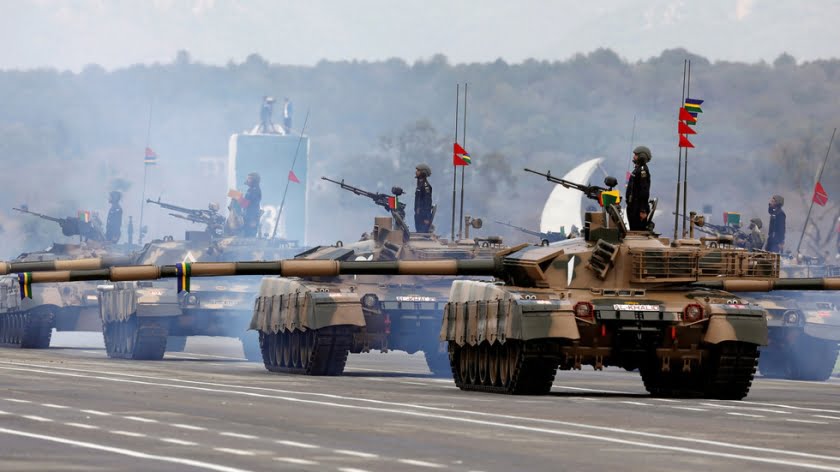Rusrael Is Still Strong Despite the Departure of Putinyahu
Their strategic partnership stood the test of “Israel’s” latest political transition because it’s mutually beneficial and has successfully diversified beyond the leadership level to encompass their permanent military, intelligence, and diplomatic bureaucracies (‘deep state’).
The de facto Russian-”Israeli” alliance that can casually be referred to by the portmanteau “Rusrael” is still strong despite former Prime Minister Netanyahu’s departure from office earlier this year. The last “Israeli” leader had such close ties with Russian President Putin after having visited him on multiple occasions (including as his guest of honor during the 2018 Victory Day parade in Red Square) and spoken to him on the phone even more times than that over the years that one could actually refer to them as the singular “Putinyahu”. Even though this duo is no longer a political force, their Russian-”Israeli” relations remain excellent as proven by the successful outcome of the “Israeli” Foreign Minister’s visit to Moscow last week.
For those who haven’t been closely following Russian-”Israeli” relations, or if they’ve been indoctrinated with the fake news about their ties that has been incessantly propagated for years by some prominent voices in the Alt-Media Community (AMC) and hope to finally liberate their minds by learning the truth about this topic, here are two of my most recent analyses that summarize the contemporary state of affairs between them:
* 19 March 2021: “Lavrov Authoritatively Debunked The Fake News About Russian-‘Israeli’ Relations”
* 2 August 2021: “Is Russia Recalibrating Its De Facto Alliance With Israel In Syria?”
(four additional analyses are hyperlinked to in this piece, one of which leads to 15 other ones for reference)
To sum it up, Russia and “Israel” are practically allies at this point after Moscow pledged to secure Tel Aviv’s security interests in Syria. Although the Kremlin criticizes “Israel’s” regular strikes against the IRGC and its Hezbollah allies in the Arab Republic, it hasn’t done anything to stop them until recently when it belatedly bolstered Damascus’ air defense capabilities. Even so, this latest development hasn’t harmed bilateral ties.
Before their talks began, Lavrov praised the state of Russian-”Israeli” relations by proclaiming that “These decades have proved that our relations have become mature, advanced and trustful, and that they are of benefit to the people of Russia and Israel.” This sent a strong signal to observers not to expect anything but the most positive outcome possible from their meeting. Once it was finished, he held a press conference with his counterpart where he updated the press about everything that they talked about and touched upon the most pressing issues of relevance to their relations.
What follows are quotes from the Ministry of Foreign Affairs’ transcript of their talks followed by my analysis:
* “As is traditional, the atmosphere was friendly and trust-based. We agreed that the results were useful.”
– This shouldn’t surprise anyone: Russia and “Israel” truly trust one another and always have fruitful talks.
* “We also agreed to continue cooperating in various interdepartmental areas, investment and other projects that were negotiated and supported earlier by the President of the Russian Federation and the Prime Minister of the State of Israel.”
– This is a reference to the importance that the “Putinyahu” factor had on bringing relations between them to the strategic level. Intergovernmental ties are intensifying with an aim towards strengthening these two’s economic relations in order to comprehensively diversify their de facto alliance beyond the military realm.
* “We focused on the need to coordinate our efforts in curbing attempts to rewrite the universally recognised results of World War II, preventing the glorification of Nazi criminals, and putting an end to the connivance of neo-Nazi trends that are being manifest in Central and Eastern European countries. We will continue coordinating our actions at all international venues, including the UN.”
– Russia is fundamentally opposed to fascism, especially when it comes to its anti-Semitic manifestation. Putin made this absolutely clear during his keynote speech in January 2020 at the “Remembering The Holocaust: Fighting Antisemitism Forum” where he was invited as Netanyahu’s guest of honor. Lavrov is simply reminding everyone of Putin’s pledge to fight anti-Semitism and other forms of fascism through the UN and other forums.
* “We welcomed the normalisation of Israel’s ties with a number of Arab countries and we support the continuation of this process. We believe it should facilitate a comprehensive settlement in the Middle East.”
– While some so-called “Non-Russian Pro-Russians” (NRPR) loudly criticized the trend of Arab-”Israeli” normalization, Lavrov is letting them know that Moscow feels very differently and is in full support of it.
* “We discussed the prospects for military and political developments in the Syrian Arab Republic. We noted the need to fully comply with UN Security Council Resolution 2254, which reaffirms support for the sovereignty, unity and territorial integrity of Syria and the lawful right of the Syrians to decide their own destiny.”
– This is just a repeat of what Lavrov said earlier this year while meeting with his counterpart’s predecessor, which itself was a reaffirmation of prior statements. In essence, due to their trust-based relationship, Russia sincerely believes that its “Israeli” ally respects UNSC 2254 and supports it just as much as Moscow does.
* “We will continue our dialogue at various international organisations. We have ramified contacts in the foreign and defence ministries and security councils. This allows us to fully consider each other’s interests in international and regional affairs when planning our work.”
– Lavrov wants the entire world to know that Russia and “Israel” are de facto allies, which is why the Kremlin “fully considers [Israel’s] interests in international and regional affairs when planning [its] work.” This is a strong message to Biden that Putin is “poaching” “Israel” from him as an ally after his team took it for granted.
* “The minister kindly invited me to visit the State of Israel, which I will do with pleasure.”
– Lavrov can’t wait to travel to “Israel” and meet its new government, which will further strengthen their ties.
* “We discussed all aspects of the Syrian peace process. The situation is difficult and is not getting any easier so far. Largely because too many external players and their interests are involved in these processes. Some of these interests are legitimate, such as Israel’s security. We always emphasise that for us, this is one of the key priorities in the Syrian case as well as in other conflicts.”
– Lavrov already said in January of this year that Russia will “neutralise” any of the Syrian-emanating threats that its “Israeli” ally informs it of so no one should doubt Moscow’s commitment to the self-professed “Jewish State’s” security, which the Kremlin regards as “legitimate”. Having said that, there still exist some differences between their respective tactics, which leads to the next quote.
* “As for Israeli strikes on Syrian territory, I can confirm that we strongly oppose turning the Syrian Arab Republic into a theatre of confrontation between third countries. We do not want Syrian territory to be used for actions against Israel or anyone else. Our military officials discuss the practical issues of this substantively on a daily basis. I think this has proven to be useful. Today we agreed that it will be continued.”
– This is consistent with the Kremlin’s publicly proclaimed foreign policy goal of always strictly respecting international law. In practice, though, it can be compellingly argued that Moscow has turned a blind eye to these same “Israeli” strikes for years already despite its occasional rhetoric. This is due to the strategic costs associated with countering them and the seemingly more important need to maintain their de facto alliance.
* “We think it is useful to use any opportunity to revive the process of a Palestinian-Israeli settlement. At this point, our Israeli friends are giving priority to socio-economic problems on Palestinian territory. We are also contributing to these efforts. This is necessary to allow the residents of the Palestinian National Authority to feel more confident.”
– Russia not only supports its “Israeli friends’” investments in Palestine, but is also contributing to them in an unclear way. This speaks to the Kremlin’s gradual shift from geopolitcs to geo-economics whereby economic factors are increasingly taking precedence over political ones when it comes to the way in which Russia conceptualizes international problems and their possible solutions.
———-
Considering all of the fact-based insight that was shared above from Lavrov’s recent press conference with his “Israeli” counterpart, it can confidently be concluded that “Rusrael” remains strong despite the departure of “Putinyahu”. Netanyahu indelibly left his mark on “Israeli” grand strategy by leveraging his very close friendship with Putin for the purpose of unprecedentedly accelerating their decades-long rapprochement into a de facto alliance by the time he left office earlier this year. Their strategic partnership stood the test of “Israel’s” latest political transition because it’s mutually beneficial and has successfully diversified beyond the leadership level to encompass their permanent military, intelligence, and diplomatic bureaucracies (“deep state”).

